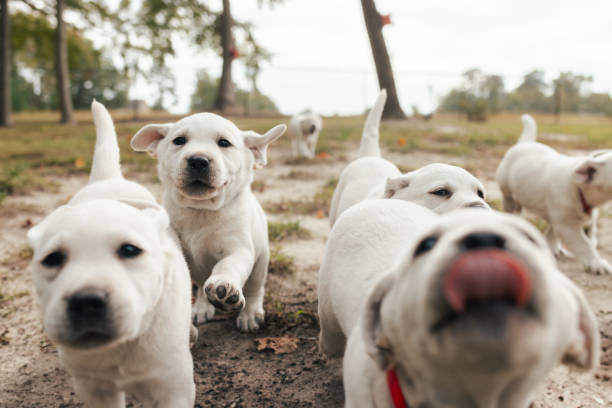Play is not just a way to pass the time; it's a critical component of a pet's development, learning, and socialization. For pet-care businesses, understanding and harnessing the power of play can transform the services offered, leading to happier, healthier pets and highly satisfied clients. This blog post explores the importance of play in pets' behavioral development and provides practical tips for integrating meaningful play into everyday pet-care routines.
Understanding the Benefits of Play

Play is fundamental in the development of young animals, but its benefits extend throughout a pet's life. Here are several key benefits:
- Enhances Learning: Playful activities can enhance cognitive development in pets. Through play, pets learn problem-solving skills, master new commands, and adapt to social cues.
- Promotes Social Skills: For many pets, especially dogs, play is a primary means of social interaction. Through play, they learn the nuances of communication with other animals, understanding boundaries, and reading body language.
- Encourages Physical Health: Regular play keeps pets physically active and agile, which is crucial for maintaining healthy weight and motor skills.
- Reduces Behavioral Problems: Playing can alleviate issues like anxiety and aggression. It provides an outlet for pets to expend their energy positively, preventing boredom and associated destructive behaviors.
Integrating Play into Pet-Care Services

For pet-care businesses, play is an essential service component that should be structured and purposeful. Here are ways to integrate play effectively:
1. Structured Play Sessions
- Organize play sessions that are tailored to the pets' age, size, and energy levels. Structured play helps ensure all pets are engaged and safe.
- Use toys and games appropriate for the pets' developmental stages. Puzzle toys can provide mental stimulation, and tug-of-war games can provide physical exercise and learning control.
2. Supervised Group Play
- Offer supervised group play sessions that allow pets to interact under the watchful eyes of trained staff. This helps in safely socializing pets with others.
- Group play sessions should be monitored to ensure play remains safe and positive. Staff should be trained to recognize signs of stress or aggression and intervene when necessary.
3. Educational Play
- Incorporate training into playtime by using games that reinforce commands and behaviors. For example, use fetch to practice "come" commands or agility courses to enhance obedience.
- Educational play not only makes learning fun but also reinforces the pet’s skills in an engaging way.
4. Customized Play Plans
- Recognize that each pet is unique. Develop personalized play plans based on a pet's specific needs, interests, and personality. This individual attention can make a significant difference in the pet’s development and satisfaction with the service.
5. Encourage Pet Parent Participation
- Educate pet parents on the importance of play and provide them with tips and tools to continue playful learning at home. This can deepen the pet's learning experience and enhance the pet-owner bond.
- Consider hosting workshops or classes that teach owners how to effectively play with their pets to reinforce behaviors learned at your facility.
The Role of Play in Pet-Care Facilities

Integrating play into pet care is more than just filling time; it's about enriching the pets' overall experience and fostering a well-rounded developmental environment. Play should be seen as an essential element in the service offering, reflecting the business's commitment to the comprehensive well-being of the pets in its care.
The role of play in learning and socialization cannot be overstated. For pet-care businesses, providing structured, thoughtful play opportunities is a key strategy in promoting healthy, happy pets. By prioritizing play, businesses not only improve the quality of life for the animals they serve but also position themselves as leaders in innovative, holistic pet care. Play is powerful—it's not just fun and games; it's a fundamental part of a pet’s growth and happiness.
Subscribe to the Gingr Blog






